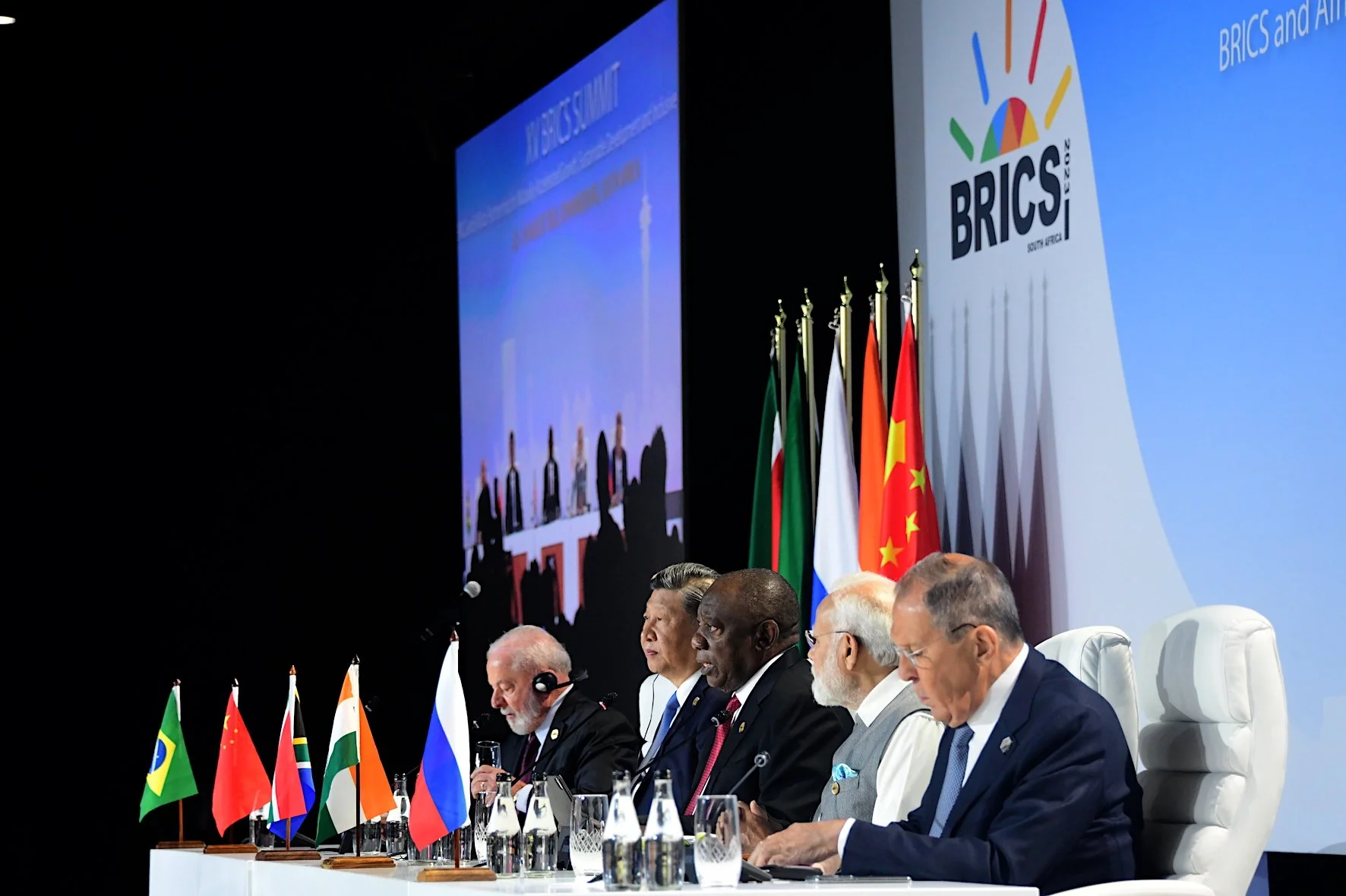China and Australia appear to have patched things up, and more conciliatory tones are even heard about relations with the United States following Xi’s visit in November. In this In Forum, 9DASHLINE asks a number of experts to weigh in on whether we can expect improving ties to continue through 2024.
Read MoreWritten by Dr Rafal Ulatowski
Germany is too weak militarily to change the balance of power in the Indo-Pacific. Its military presence satisfies the expectations of the regional middle powers and of the United States while having only a minor adverse impact on Germany’s relations with China.
Read MoreIn 2023, policymakers worldwide invested an unprecedented amount of time and resources in developing strategies for their relations with China. This heightened focus was prompted by the significant influence of Beijing's domestic, foreign, and security policies on the economies and politics of other countries.
We present some of our most-read analyses on different countries’ evolving strategies towards China featured in the past year.
Read MoreSouth Korea's (ROK) role in global politics has evolved significantly in recent years, with the country emerging as a pivotal player in the Indo-Pacific region. Under President Yoon Suk-yeol, it has strengthened its security alliance with the US and pursued a more assertive stance towards North Korea.
We review some of our most-read analyses about South Korea from the last year.
Read MoreIt was a busy year: the tenth anniversary of Xi’s Belt and Road Initiative, the ongoing war in Ukraine and questions about China’s role therein, as well as the increasingly urgent Taiwan issue, are just a few examples of topics that have made it to the top of analysts’ and policymakers’ agendas in 2023.
We summarise some of our most-read pieces about China as a global actor, which also generated a lot of discussion and debate among our readers.
Read MoreAs the 2022 G20 Chair and last year’s chairman of the Association of Southeast Asian Nations (ASEAN), Jakarta has been at the forefront of several important discussions around current world affairs. On 14 February 2024, the country will hold its general elections.
We present some of our most insightful pieces looking at various aspects of Indonesia’s internal dynamics and its engagement with the external world.
Read More2023 was a year marked by both progress and challenges for China. Its economy exhibited a strong recovery thanks to the lifting of COVID-19 restrictions, and urbanisation has continued as millions move from rural to urban areas in search of better opportunities.
We review some of our most insightful analyses of key issues across China’s domestic political and policy landscape.
Read More9DASHLINE’s leadership — David MacSweeney, Dr Manali Kumar, and Dr Zsuzsa Anna Ferenczy — reflect on the major developments over the past year and answer some frequently asked questions about our goals and hopes for 2024.
Read MoreWritten by Manish Jung Pulami
The pro-monarchy protests are a reminder that Nepal’s democratic journey is far from over. While the monarchy may be a relic of the past, the underlying grievances that fuelled the latest protests remain relevant today.
Read MoreWritten by Dr Simona Grano
The key question remains to define and push for concrete tools and policies through which Europe can transform its growing solidarity towards Taiwan into a foundational basis of Europe’s China policy, without failing because of hindrances developing out of tight economic dependencies with China.
Read MoreWritten by Rishma Banerjee
Given the broader context of India’s rivalry with China, and its tightrope act of balancing ties between Russia and the West, New Delhi’s support for the six new BRICS members reflects its broader strategic and geopolitical interests.
Read MoreWritten by Dr Zsuzsa Anna Ferenczy
Taiwan is a frontline democracy, which makes it an indispensable partner for Europe, one it should learn from as it braces for its own elections, with interference and information manipulation expected to increase, in particular from China and Russia.
Read MoreWritten by Yeonsu Lee
Although the South Korean government has accepted Japan’s plan to release the Fukushima water, politicians, scientists, and citizens continue to raise concerns and criticisms.
Read MoreWritten by Elena Collinson
After seven years marked by bullying and heavy-handed tactics by Beijing, episodes of diplomatic inelegance by Canberra, and the asperity of mutual criticism, Australia-China relations have tentatively shifted to a more normalised state.
Read MoreWritten by Dr Francesca Ghiretti
Holding the first in-person summit since 2019 is an important achievement, and the EU has been able to express some important concerns to Xi Jinping directly; however, the words — especially from China — demonstrate Beijing still views the EU mostly as an economic partner.
Read MoreWritten by Bonnie Holster and Nicholas Ross Smith
Beyond the changing language of New Zealand’s strategic communications, its experimentation with a kaupapa Maori foreign policy has the potential to be transformative.
Read MoreWritten by Anand P. Krishnan
Clearly, unemployment captures the anxieties and disillusionment of youth on both sides of the Himalayan Gap. By the same count, there are no easy solutions for either government to manage, if not completely resolve, this crisis.
Read More9DASHLINE recently had the pleasure of speaking with Vincent Brussee about his new book Social Credit: The Warring States of China’s Emerging Data Empire.
This book offers one of the first comprehensive assessments of the People’s Republic of China’s infamous ‘Social Credit System’.
Read More
















